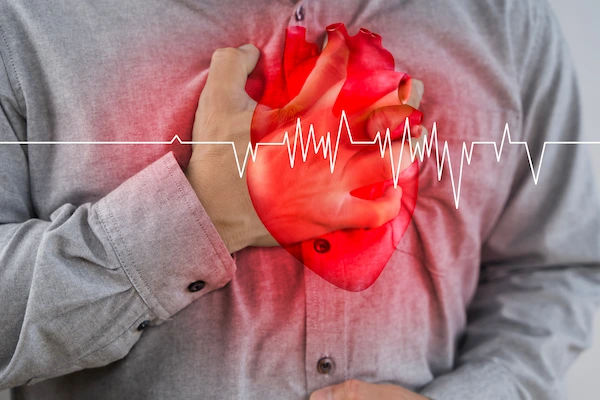Signs and Symptoms of Anaemia
Know about the signs and symptoms of anaemia and tips to manage and improve anaemia.

.webp?tr=q-80,f-webp,w-350,dpr-2,c-at_max 700w)
Introduction
Anaemia is a common health condition that occurs when your body doesn’t have enough healthy red blood cells or haemoglobin to carry oxygen to your tissues. This can leave you feeling tired, weak, and short of breath. While anaemia can affect anyone, it’s especially common in women, children, and people with chronic illnesses.
Recognising the signs early can help you take the right steps to manage it. In this article, we’ll discuss the common symptoms of anaemia, possible causes, and simple ways to improve your health.
Consult the Best General Practitioner for Personalised Advice
Common Signs and Symptoms of Anaemia
Anaemia can develop slowly, so you might not notice the symptoms right away. However, some common signs include:
1. Fatigue and Weakness
- Feeling unusually tired, even after a full night’s sleep.
- Difficulty concentrating or completing daily tasks.
2. Pale or Yellowish Skin
- A noticeable loss of colour in your face, lips, or nails.
- Some people may develop a yellowish tint (jaundice) if anaemia is due to red blood cell destruction.
3. Shortness of Breath
- Feeling breathless even after mild activity, like climbing stairs.
- Rapid heartbeat or palpitations as your heart works harder to supply oxygen.
4. Dizziness or Lightheadedness
- Feeling faint, especially when standing up quickly.
- Occasional headaches due to reduced oxygen flow to the brain.
5. Cold Hands and Feet
- Poor circulation can make your extremities feel unusually cold.
6. Brittle Nails and Hair Loss
- Weak, spoon-shaped nails or excessive hair shedding may indicate iron deficiency anaemia.
7. Unusual Cravings (Pica)
- Craving non-food items like ice, dirt, or chalk (common in iron deficiency).
8. Chest Pain or Irregular Heartbeat
- Severe anaemia can strain the heart, leading to chest discomfort or an irregular pulse.
If you experience several of these symptoms, it’s important to consult a doctor for proper diagnosis and treatment.
What Causes Anaemia?
Anaemia can result from various factors, including:
1. Iron Deficiency (Most Common Cause)
- Poor diet lacking iron-rich foods.
- Blood loss from heavy periods, ulcers, or surgery.
2. Vitamin Deficiency (B12 or Folate)
- Vegetarians or people with poor absorption may lack B12.
- Alcoholism or certain medications can reduce folate levels.
3. Chronic Diseases
- Kidney disease, cancer, or autoimmune disorders can affect red blood cell production.
4. Inherited Conditions
- Sickle cell anaemia or thalassemia causes abnormal red blood cells.
5. Bone Marrow Problems
- Leukaemia or other bone marrow disorders can lead to anaemia.
How to Manage and Improve Anaemia
Depending on the cause, anaemia can often be managed with simple lifestyle changes and medical treatment.
1. Eat Iron-Rich Foods
- Animal sources: Red meat, poultry, fish, eggs.
- Plant sources: Spinach, lentils, beans, nuts, and fortified cereals.
- Vitamin C helps absorption: Pair iron-rich foods with oranges, tomatoes, or bell peppers.
2. Take Supplements (If Recommended by a Doctor)
- Iron, B12, or folate supplements can help if dietary intake is insufficient.
3. Treat Underlying Conditions
- If anaemia is due to chronic illness, managing the root cause is essential.
4. Avoid Iron Blockers
- Tea, coffee, and calcium-rich foods can interfere with iron absorption.
5. Stay Hydrated and Exercise Moderately
- Light exercise (like walking) can improve circulation and energy levels.
6. Get Regular Check-ups
If you have a history of anaemia, routine blood tests can help monitor your condition.
When to See a Doctor
If you suspect you have anaemia, don’t ignore the symptoms. Seek medical advice if you:
- Feel constantly exhausted despite rest.
- Experience chest pain or severe dizziness.
- Notice unusual bleeding (heavy periods, blood in stool).
A simple blood test can confirm anaemia and help determine the best treatment.
Final Thoughts
Anaemia is a manageable condition once diagnosed. By recognising the symptoms early and making small dietary and lifestyle changes, you can improve your energy levels and overall well-being. Listen to your body if something feels off; don’t hesitate to seek medical advice.
Consult the Best General Practitioner for Personalised Advice
Consult the Best General Practitioner for Personalised Advice

Dr Syed Mateen Pasha
General Physician
2 Years • MBBS
Bengaluru
PRESTIGE SHANTHINIKETAN - SOCIETY CLINIC, Bengaluru

Dr. Anand Ravi
General Physician
2 Years • MBBS
Bengaluru
PRESTIGE SHANTHINIKETAN - SOCIETY CLINIC, Bengaluru

Dr. Syed Ismail Ali
General Practitioner
7 Years • MBBS
Hyderabad
Apollo 24|7 Clinic, Hyderabad
Dr. Karanam Kondalamma
General Practitioner
4 Years • MBBS
Hyderabad
KK Clinic, Hyderabad

Dr. Johnson. S
General Practitioner
7 Years • MBBS MD(Preventive and social Medicine)
Pune
Apollo Clinic, Nigdi, Pune
Consult the Best General Practitioner for Personalised Advice

Dr Syed Mateen Pasha
General Physician
2 Years • MBBS
Bengaluru
PRESTIGE SHANTHINIKETAN - SOCIETY CLINIC, Bengaluru

Dr. Anand Ravi
General Physician
2 Years • MBBS
Bengaluru
PRESTIGE SHANTHINIKETAN - SOCIETY CLINIC, Bengaluru

Dr. Syed Ismail Ali
General Practitioner
7 Years • MBBS
Hyderabad
Apollo 24|7 Clinic, Hyderabad
Dr. Karanam Kondalamma
General Practitioner
4 Years • MBBS
Hyderabad
KK Clinic, Hyderabad

Dr. Johnson. S
General Practitioner
7 Years • MBBS MD(Preventive and social Medicine)
Pune
Apollo Clinic, Nigdi, Pune


 A Targeted Cancer Treatment Guide.webp)

